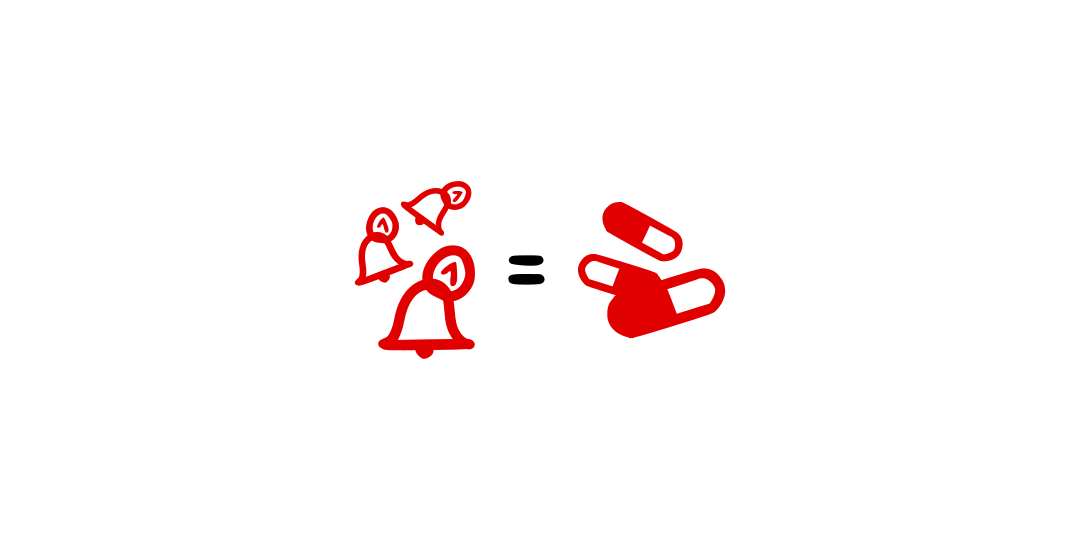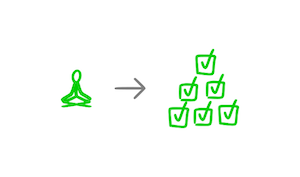How did we become addicted to social media?
In the beginning, it was innocent. Around 15-10 years ago or so, we created our first social media account. Mine was a Facebook one. It was fun, we could see what other people were doing in their lives, we could share what’s going on with our lives. Some posts were cool, some posts were awkward like some people sharing all of their activities in the day.

Why did we become addicted?
Let’s say you’re bored, without realizing you pull out your phone and open Instagram (Facebook, Twitter or whatever you’re using). Why? Why did you do that? Because it’s your habit. When you’re bored and check social media, you instantly get rewarded by a dopamine hit (dopamine is a chemical in your brain that makes you feel great). You never know what awaits you and that’s exciting.
The creators of social media are using the same tactic as casinos. They’re making us use slot machines, you pull a lever, you get a reward, but the reward is always different - a like, a follow, a comment, a DM?!!!
This reward system was discovered in the first half of the 20th century by a researcher B.F. Skinner and therefore its called the Skinner box.
If you’re interested, we recommend you to read the whole article, but the most important part of Skinner box is that the most motivating way to reward behavior is on a variable-ratio schedule. If you don’t know what and when you will get the reward but you know there is some, you will repeat the behavior again and again, even after the rewards stop coming
So back to social media, your brain gets used to the dopamine reward very quickly and learns that whenever he craves some dopamine, it can just check social media. It becomes a habit. And for some of us, the habit becomes so strong that it ruins our ability to focus.
When the social media networks started, the creators focused on getting millions of users, not whether there were possible harmful side effects.
We’re now well after a decade of social media boom, most of our generation is addicted to social media (or let’s say they have a need to check social media multiple times per day) and the side effects are becoming well-known.
Harmful side effects of social media
Time wasted
This is the most obvious one. How much time has been lost because someone has been staring at the news feed? Of course, you can say that people will always find some other distraction if they don’t want to work. But consider how easy it is to go on social media.
In the past, you might have had to make some effort to get distracted - invite friends over, talk to a neighbor, have a hobby… Now you just tap. This is true for the whole web.
Want to get distracted? You can, in 2.5 seconds. Too easy.
Anxiety
People only share the highlights of their lives. We might not realize that, but our brains get the message quickly. Everyone is happy and so should we. But sometimes we feel sad, tired, or angry. But because of social media, we don’t think that’s normal and question ourselves why our life isn’t full of happy moments and highlights.
Impatience
My previous point leads to this one. Social media make us less patient. Because of people posting only the results, we don’t get to see the struggle and pain - the process.
We don’t see how tiring and annoying it was to wait at the airport for 2 hours and then how mind-numbing the 12 hour flight to that beautiful island was. No, we see only the beach photo.. We don’t get to see how many hours someone spent practicing one cool exercise move. No, we see only when he finally did it on the 101th attempt. We don’t get to see how many sales failures and awkwardness the rich woman had to go through to buy the new sweet BMW.
Social media makes us want everything right now. And when we struggle, we feel something is wrong with us.
Constant distractions
The default of all social media is to inform us about everything immediately. Why? Their goal is to make the most money. How do they do that? By showing us ads. The more often we come, the more ads they can show us. That’s why all social media apps have turned on notifications when we install them. Push notifications distract us constantly throughout the day and make us come back often.
Diluting our ability to focus
It’s almost at the bottom of the con’s list, but for me, it’s the most important one and the one I’m thinking about the most. I would split it into two parts:
Short-term
Do you realize how difficult it is to start focusing right after checking social media? If you have a difficult task that requires a state of deep focus, you find you aren’t able to focus even a little because your brain is so restless. Why? We’ve just been hit by dopamine bombs and our brain is in an over-stimulated state, looking only for the next dopamine hit, not heavy intellectual effort.
Long-term
Social media is full of dopamine hits that makes us feel good and we can go get them all too easily, without any effort at all. Work, on the other hand, is usually more boring and difficult. There is also some dopamine to be found through us being curious and figuring out new things, but it costs way more effort. We have to stick with it to get a reward. But social media erodes our ability to stick with it.
Less boredom
How is that a con? Isn’t the point of most people’s endeavors to escape boredom? Yes, but boredom is one of the best ways to get new ideas. You might come up with new hobbies, meet new people, watch something interesting. But social media makes our default escape of boredom checking social media and no one is going to remember that.
Hey man, do you remember how we were checking social media for the whole day, that was so cool, right? Do you want to do it again? said no one ever.
Also, boredom can lead to thinking about life and most of the time we don’t want to think about life, because we might realize things that are harsh.
How to stop being addicted?
We’ve already written about various ways to stop being distracted, so here’s a short list:
If you want to check your phone less, read this.
If you want to cut distractions in general, we have a comprehensive chapter on the various ways in our guide.
If you feel like you never get bored anymore, read this.
If you’re afraid of missing out? Instead, go for joy of missing out.


